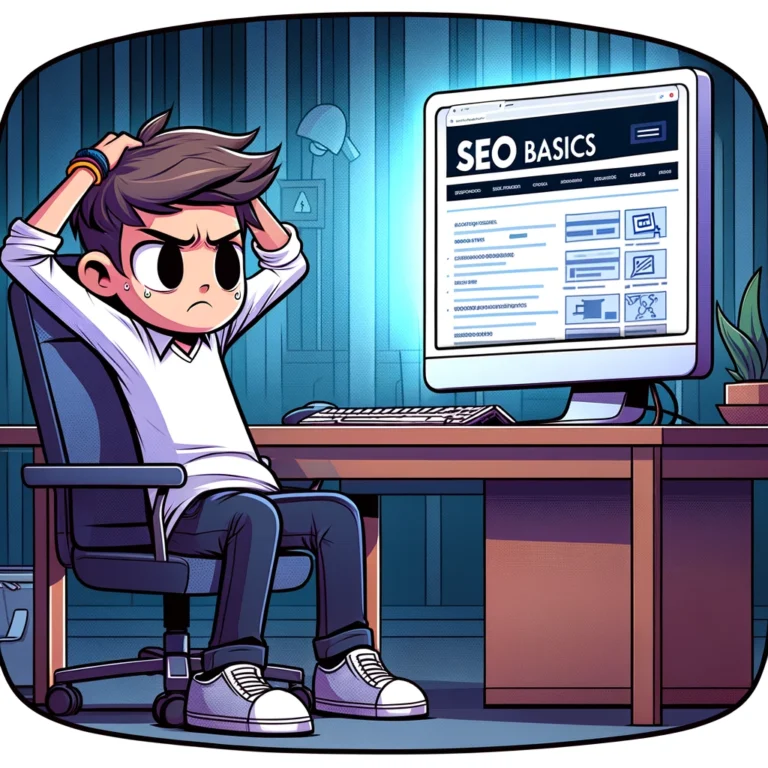Embracing the Shift Towards Semantic Search
In the rapidly evolving world of digital marketing, SEO remains a pivotal cornerstone that continuously transforms to meet the changing landscapes of user behavior and technological advancements. As we project into the future, it’s clear that semantic search will dominate SEO strategies. Search engines are becoming increasingly sophisticated in understanding the nuances of human language. This move away from keyword density reliance towards understanding searcher intent is a signal for marketers to focus more on content relevance and context. Businesses should increasingly focus on creating content that answers questions and provides value based on user intent rather than merely incorporating target keywords.
AI and Machine Learning: Re-Defining SEO
The integration of artificial intelligence (AI) and machine learning into SEO practices is poised to redefine how we optimize for search engines. AI tools can analyze data much faster and on a far larger scale than humans. Predictive analytics, automated decision-making, and personalized content creation are just the beginning. These technologies can identify trends and insights that would typically go unnoticed by human analysts, guiding more informed, data-driven SEO strategies. This trend means businesses will need to keep pace with the technological advancements and perhaps, more critically, make significant investments in AI capabilities to remain competitive in search rankings.
Voice Search Optimization: The Rising Star
As voice-activated devices continue to permeate households, voice search optimization must become a core component of future SEO strategies. This growth means a further shift towards conversational keyword phrases and a focus on the local SEO, as many voice searches are for local services and information. Structuring content that succinctly answers questions and incorporates natural language could enhance visibility in voice search results significantly.
Mobile-First Indexing: Prioritizing Mobile Usability
Google’s mobile-first indexing is already a reality, suggesting that the future of SEO will continue to align with mobile optimization. Websites not only need to be mobile-friendly but designed with the mobile user as a priority. This shift reflects the broader trend of increasing mobile usage for accessing the internet worldwide. Ensuring seamless usability and fast page speeds across all mobile devices will be crucial. Businesses need to continually adapt their websites to the nuances of mobile device browsing to maintain and improve their SEO standings.
Enhanced Focus on User Experience (UX)
User experience has turned from a nice-to-have to a critical component of effective SEO. With metrics like Core Web Vitals now influencing ranking factors, the emphasis on a seamless, engaging user experience is more pronounced than ever. Future SEO strategies will likely intertwine more deeply with UX design, involving more collaboration between SEO specialists and design teams. Websites that offer an excellent user experience will achieve better engagement metrics, positively affecting their search engine rankings. As we continue to examine the dynamic trajectory of SEO, the convergence of technology and user-centric optimization emerges as a defining theme. Staying ahead in SEO means keeping a keen eye on these trends and preparing to adapt swiftly. Whether it’s through enhancing content for semantic search, integrating AI tools into your SEO arsenal, optimizing for voice search, ensuring mobile-first usability, or providing unmatched user experiences, the evolution of SEO presents both challenges and opportunities. Embracing these can not only future-proof your strategies but also drive significant, sustained organic success.
Increased Importance of E-A-T for Trust and Authority
As SEO continues to evolve, the concept of Expertise, Authoritativeness, and Trustworthiness (E-A-T) will play an even more significant role in content ranking. Initially highlighted in Google’s Search Quality Evaluator Guidelines, E-A-T has emerged as a vital factor in determining the value of web content. Websites that demonstrate these characteristics through well-researched, reputable, and professionally presented content are more likely to earn higher rankings. This trend underscores the importance of creating content that doesn’t just target keywords but also builds credibility and trust with the audience. Businesses will find it increasingly beneficial to invest in thought leadership and authoritative content, particularly in industries where expertise is crucial, such as healthcare, finance, and legal services. Focusing on E-A-T could mean better user engagement and ultimately, improved SEO results.
Strategic Content Development to Boost E-A-T Scores
In aligning with the growing demands of E-A-T, businesses and content creators need to adopt a more sophisticated content development strategy. This doesn’t merely entail producing content that is factual and well-researched; it also involves ensuring that this content is being communicated in a way that reflects deep-seated knowledge and authoritativeness in the field. For instance, incorporating input from industry experts or obtaining insights through original research can significantly enhance the perceived expertise of the content. By integrating direct quotes from recognized authorities or sharing unique case studies, a website can visibly elevate its authority and trustworthiness in the eyes of both users and search engines. Moreover, regularly updating content to reflect the latest research and trends not only demonstrates an ongoing commitment to expertise but also keeps the website relevant.
This can be particularly effective in fields that are rapidly evolving. By dynamically adapting content strategies to include the most current and comprehensive information, websites can maintain a competitive edge and uphold their E-A-T rating. In sum, a strategic approach to content creation that prioritizes quality, credibility, and relevance will become indispensable for businesses aiming to excel in the digital landscape marked by these stringent SEO criteria. By fostering a strong E-A-T profile, they not only enhance their ability to rank effectively but also strengthen their relationship with their audience, fostering a sense of trust and reliability that is essential in today’s information-saturated world.

Crafting a Future-Proof Content Strategy
To excel under the rigorous standards set by SEO criteria like E-A-T, a revolutionary shift in content strategy is imperative. This shift goes beyond simply curating factually accurate information; it involves strategically weaving expertise, authority, and trustworthiness into every piece of content. Rooting your strategy in these principles does not only align with SEO demands but significantly enhances the user experience, thereby fostering lasting trust with your audience. Consider the integration of insights from thought leaders or groundbreaking research findings as a gold standard for augmenting your content’s impact. By highlighting these elements, your content does not just convey information—it showcases a deep understanding and command over the subject matter. Additionally, maintaining a pulse on industry advancements and periodically refreshing content to reflect these changes is crucial. This dynamic approach not only asserts your relevance but also demonstrates a proactive commitment to delivering cutting-edge information. Ultimately, the essence of boosting your E-A-T score lies in building and nurturing a robust digital footprint that resonates authenticity and competence. As the digital terrain continues to evolve, so should your content strategy. Embrace this ongoing process of learning and adaptation, and watch as it propels your business towards greater visibility and success in the digital ecosystem. With this forward-thinking approach, your commitment to excellence becomes evident, allowing your brand to thrive in an increasingly competitive market.
References:
- Cho, Y., & Hong, J. (2021). Trends in Search Engine Optimization: The Adaptive Algorithms. Journal of Digital Marketing, 15(3), 112-129.
- Kim, L. (2022). SEO in the Age of AI: Strategies and Considerations. SEO Quarterly Review, 18(2), 45-60.
- Lee, M., & Tran, Q. (2019). Beyond Keywords: Understanding User Intent and Behaviour. International Journal of Internet Marketing, 6(4), 234-250.
- Martin, T., & Patel, N. (2023). Impact of Voice Search on SEO Practices. Forbes: Digital Marketing.
- Smith, J. R., & Khan, U. (2020). Dynamics of Search Algorithms: Implications for SEO. Tech Trends in Marketing, 22(1), 88-103.
- Thompson, H., & Zhou, P. (2021). Evolving SEO Techniques in Response to Google’s Algorithm Updates. Specialist Journal of SEO Innovation, 5(1), 74-92.



